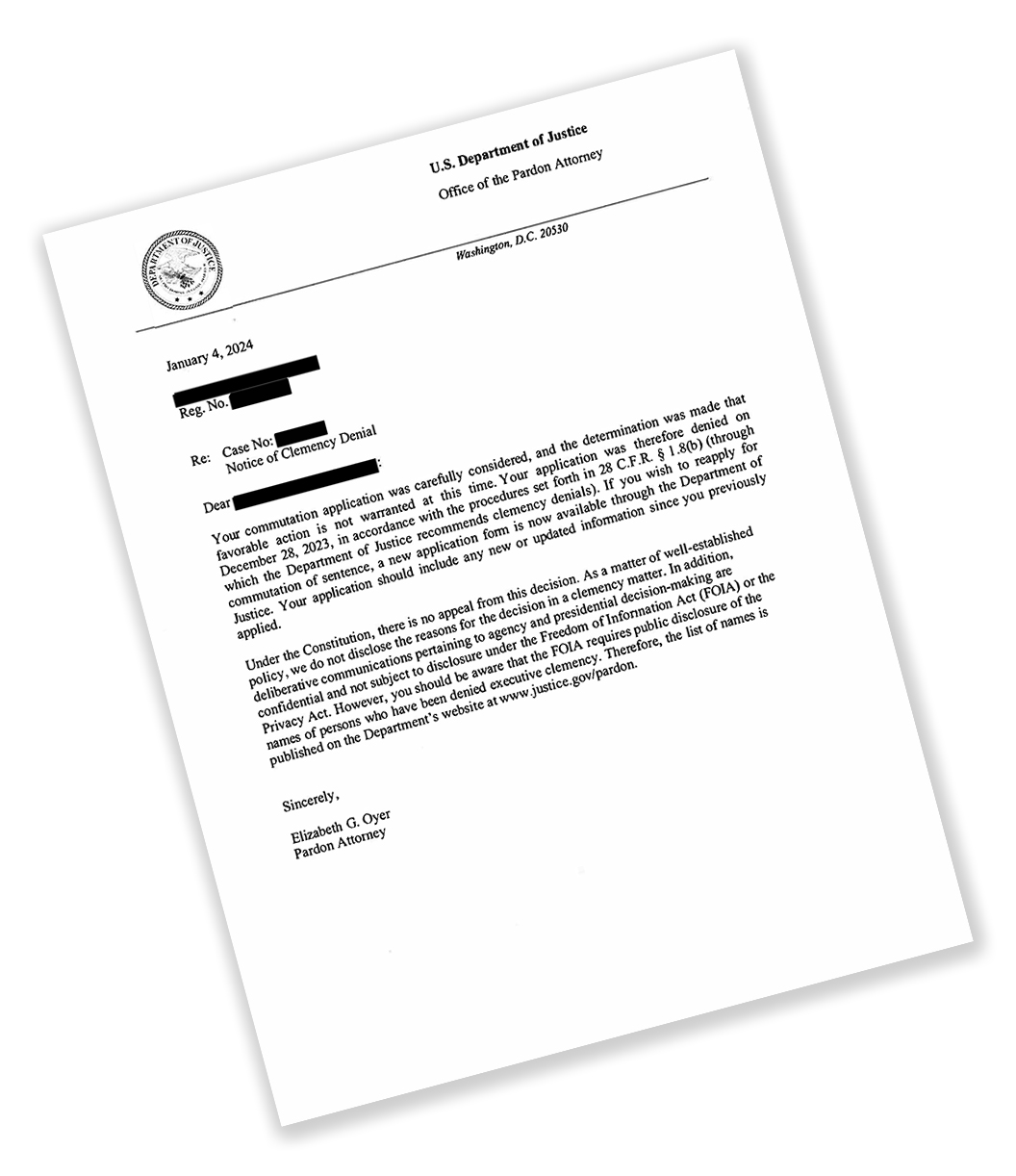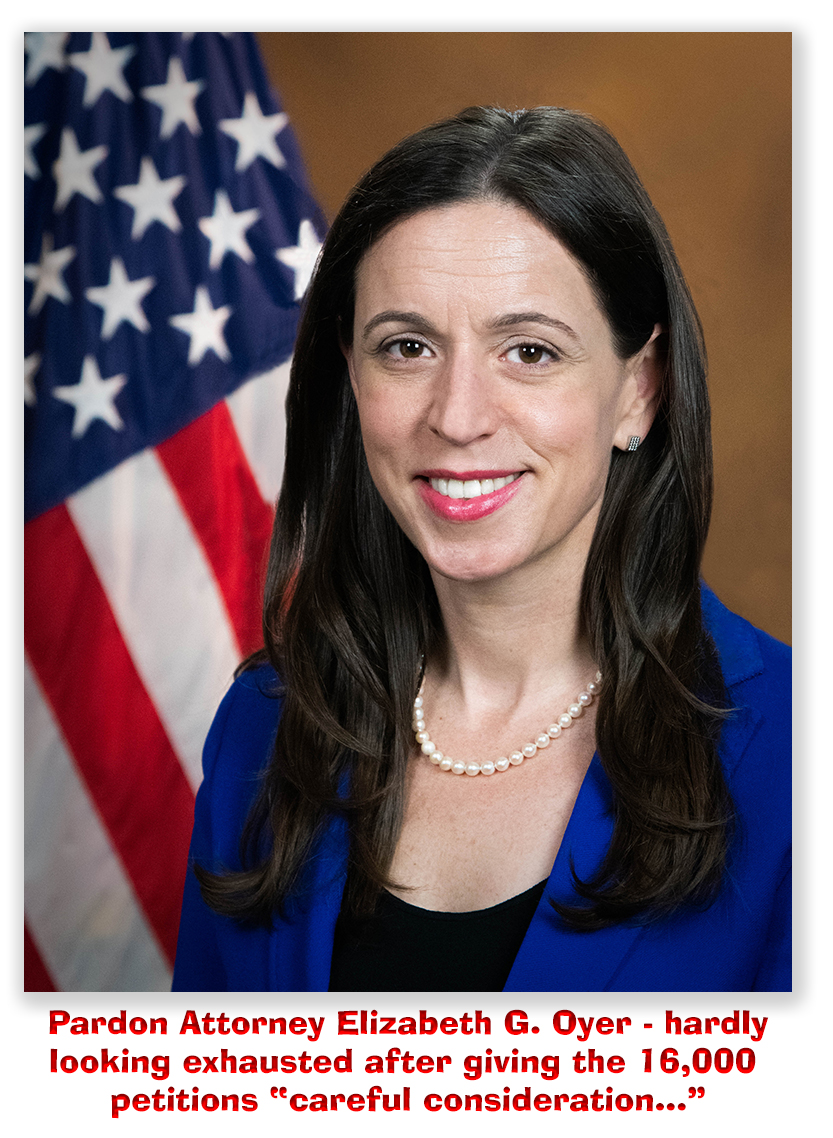We post news and comment on federal criminal justice issues, focused primarily on trial and post-conviction matters, legislative initiatives, and sentencing issues.

BIDEN’S SECOND CHANCE TO GET SECOND CHANCE MONTH RIGHT
 President Biden has again designated April as Second Chance Month, the eighth annual proclamation since Charles Colsen’s Prison Fellowship convinced Congress to recognize April for that purpose in 2017.
President Biden has again designated April as Second Chance Month, the eighth annual proclamation since Charles Colsen’s Prison Fellowship convinced Congress to recognize April for that purpose in 2017.
Biden used the proclamation as a chance to burnish his Administration’s achievements in promoting second chances for prisoners, including what he called “over 100 concrete actions that my Administration is taking to boost public safety by improving rehabilitation in jails and prisons, helping people rebuild their lives, and reducing unnecessary interactions with the criminal justice system so police officers can focus on fighting crime.”
So far, those “actions” have not included much use of the presidential clemency power. In. The Hill, Rev. Terrence McKinley said that despite Biden’s annual “call to prioritize criminal justice reform and the clemency process in the United States,” he has only exercised his pardon power to grant 13 pardons and 124 commutations, less than one percent of the thousands of pending applications.”
Rev. McKinley, pastor of the Campbell AME Church in Washington, DC, wrote that
A pardon is an act of grace. But such acts of grace should not be so rare…. By exercising his pardon power more robustly, President Biden has the opportunity to paint a stark contrast with his predecessor… [T]here are thousands of people with criminal records whose applications for clemency have been languishing in the federal system—people who are currently in prison serving overly harsh sentences and people who have been released long ago but live with the looming threat of deportation, barriers to employment and housing, and other forms of civil death.
 Last April, Biden commuted the sentences of 31 prisoners already on CARES Act home confinement.
Last April, Biden commuted the sentences of 31 prisoners already on CARES Act home confinement.
Proof of Biden’s commitment to clemency may be reflected in White House response to the DOJ Office of the Pardon Attorney. The OPA recently published its FY 2025 President’s Budget Submission, requesting $12.5 million (a 16% increase) to add to petition processing staff. OPA has 40 employees (including 26 attorneys) now. Its not-especially-ambitious goal is to increase the number of cases on which it makes a recommendation in a year from 30 to 35% and to increase the amount of correspondence answered in one month from 90 to 92%.
There is an undercurrent of unhappiness, even among Biden supporters, over his lukewarm embrace of federal criminal justice reform. Eric Alexander, a formerly incarcerated Black man, who now works for the Campaign for the Fair Sentencing of Youth, was recently asked by a member of the legislature about Biden’s record on criminal justice compared to his predecessor, Donald Trump, who signed the First Step Act into law. Alexander said, “It is my belief that if the last administration was allowed to be in office again, that we wouldn’t be here having this conversation. That administration would have dealt with this…”
 St John University law prof Mark Osler, a clemency expert, said on CNN, “Alexander wasn’t deluded, tricked or unknowledgeable. While Trump promised nothing on criminal justice reform but still did something significant, Biden promised a lot but so far has done nothing of real substance. For those of us who don’t want Trump to be re-elected, this is an uncomfortable truth, but to Biden and his campaign, it should be a call to action.”
St John University law prof Mark Osler, a clemency expert, said on CNN, “Alexander wasn’t deluded, tricked or unknowledgeable. While Trump promised nothing on criminal justice reform but still did something significant, Biden promised a lot but so far has done nothing of real substance. For those of us who don’t want Trump to be re-elected, this is an uncomfortable truth, but to Biden and his campaign, it should be a call to action.”
White House, A Proclamation on Second Chance Month, 2024 (March 29, 2024)
The Hill, This Easter, I pray for pardons (March 31, 2024)
CNN, Biden’s failures in criminal justice could cost him an election (March 26, 2024)
– Thomas L. Root




